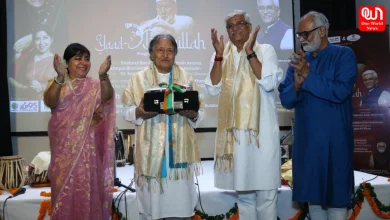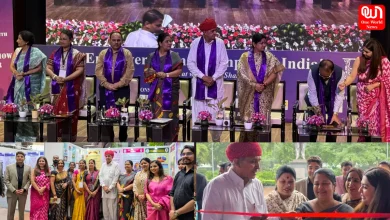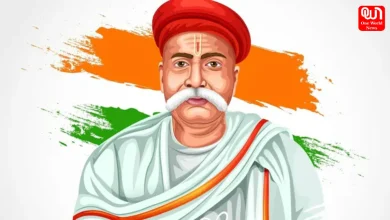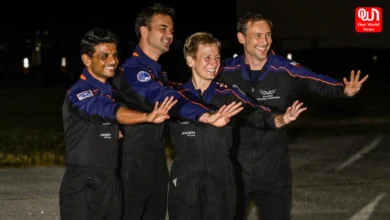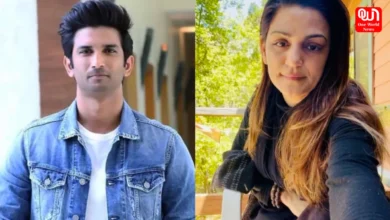Pandita Ramabai: A 19th-century woman who fought for women’s education
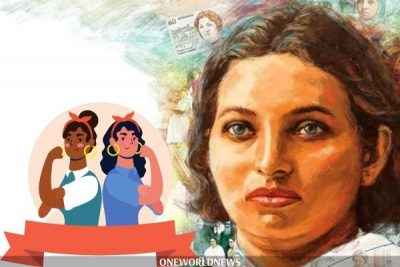
Who was Pandita Ramabai? A feminist, social worker, or both?
There have been many prominent social reformers in the history of India, who led the important work done for the bright future of the country. One such eminent and determined woman was Pandita Ramabai, a prominent feminist female social reformer of the time whose fame spread throughout the world, but nonetheless erased from the mainstream history of India with notable criticisms and, it has also happened to many other prominent feminist female leaders of the time. It is important for us to understand that the history of Pandita Ramabai is not just a matter of being removed or forgotten from the history of India, but it is also about actively raising the voice of a feminist woman leader who rebelled against Brahminical patriarchy and caste domination.
How was her childhood?
Pandita Ramabai is called the first feminist in the country. She was born on 23 April 1858 in a Brahmin family of Maharashtra. Her father Anant Shastri Dongre was a Sanskrit scholar. He also taught RamaBai Sanskrit. RamaBai lost her parents in her childhood. After this, she roamed around the country and kept giving lectures. By the age of 22, Ramabai had become a great scholar of Sanskrit. She knew seven languages like Kannada, Marathi, Bangla, and Hebrew. She was an extraordinary woman of her time. She was a teacher, scholar, feminist and social reformer.
Pandita Ramabai critiqued patriarchal thinking
Pandita Ramabai was present in the civil society of the 1870s as a major explosion. She was well educated. She was a rebel and was a harsh critique of patriarchy. At first, the pundits called her Saraswati but as soon as she started speaking against the Brahminical patriarchy and adopted Christianity, she became a rebel. In 1880, she married a non-Brahmin Bengali lawyer, Vipin Bihari. This marriage was not considered right because not only it was inter-caste but also inter-regional, which was like an earthquake in terms of that time. After two years of this marriage, her husband passed away but he left behind a small child. A few years after the death of her husband, Rama settled in Poona. Here she founded the ‘Arya Mahila Samaj’ and started teaching girls. This organization also worked to stop child marriages. In 1882, when the British government made a commission for education in India, Rama placed much evidence in front of it. She reported before Lord Ripon.
How did she fight with a rebellious nature?
She started questioning the status of women along with many traditions, beliefs of Hinduism. She used to criticize with arguments. Orthodox people were stunned by her. This was the period when Ramakrishna Paramhansa and Vivekananda had a lot of influence. Pandita Ramabai often used to say that Indian women not only need to be taught, but they need to be made teachers and engineers. This was the period in India when women going outside their homes was not considered good.
Read More: Meet Mrs Tejaswini Singh: Read Inspiring story of ‘Chota Sehar & Bade Sapne’
How did she go to England and become Christian?
She went to England in 1883. There she studied Christianity. Then she accepted Christianity. She and her younger daughter were baptized in the Church of England on 29 September 1883. After that, she got engaged in academic work. During that time she studied the English language there. After this most people criticized Rama. But Rama got open support from one place, Jyotiba and Savitribai Phule, the couple openly supported Ramabai.
Pandita Ramabai wrote a book during her stay in Britain, ‘The High Caste Hindu Women’. This book talks about the bad consequences of being a Hindu woman. It was written on child marriage, sati system, caste, and all such issues. Rama did a lot of work in Maharashtra as the head of the Sharda Sadan. Opened a school in Gulbarga, Karnataka. Despite all the criticism, she continued to work for the upliftment of widows.
Ramabai’s work was praised all over the world. A crater on the planet Venus has been named after her. The churches of Europe celebrate 5 April as Feast Day in her memory. The Government of India has also issued a postage stamp in the name of Ramabai. The Pandita Ramabai Mukti Mission created by her is still active today.

